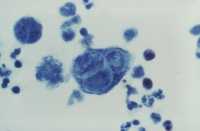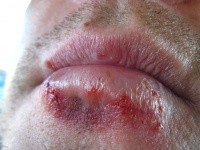Author Interviews, Herpes Viruses / 15.08.2019
Charcoal Delivery System Can Help Control Genital and Ocular Herpes Infections
MedicalResearch.com Interview with:
Tejabhiram Yadavalli, Ph.D
Department of Ophthalmology and Visual Sciences
Chicago, IL
MedicalResearch.com: What is the background for this study? What are the main findings?
Response: Charcoal black is a common ingredient used in the cosmetic industry, especially for the eye in products such as eyeliners. Traditionally, black soot obtained from burning clarified butter was used as an eyeliner and is still used today in various cultures across the world. Activated charcoal is highly porous in nature and has a surface area far greater than any other nanoparticle or microparticle known to materials science.
Since our lab works on ocular herpes infection we wanted to see whether activated charcoal can influence viral infection potentially by trapping the virus particles and rendering them ineffective. As hypothesized, we found excellent restriction of the virus from infecting the host. The most interesting results came when we applied charcoal in tandem with existing clinical antiviral (Acyclovir). This is where we saw that charcoal can absorb the drug on its surface and slowly release it over a period of time conferring protection for an extended period of time from viral infection. These antiviral drugs have to be taken multiple times a day to show comprehensive protection against the virus. However, we found that the drugs mixed with charcoal were need to be given with much reduced frequency to show excellent antiviral activity. This charcoal platform termed as DECON was effective in controlling both ocular and genital herpes infections. (more…)


